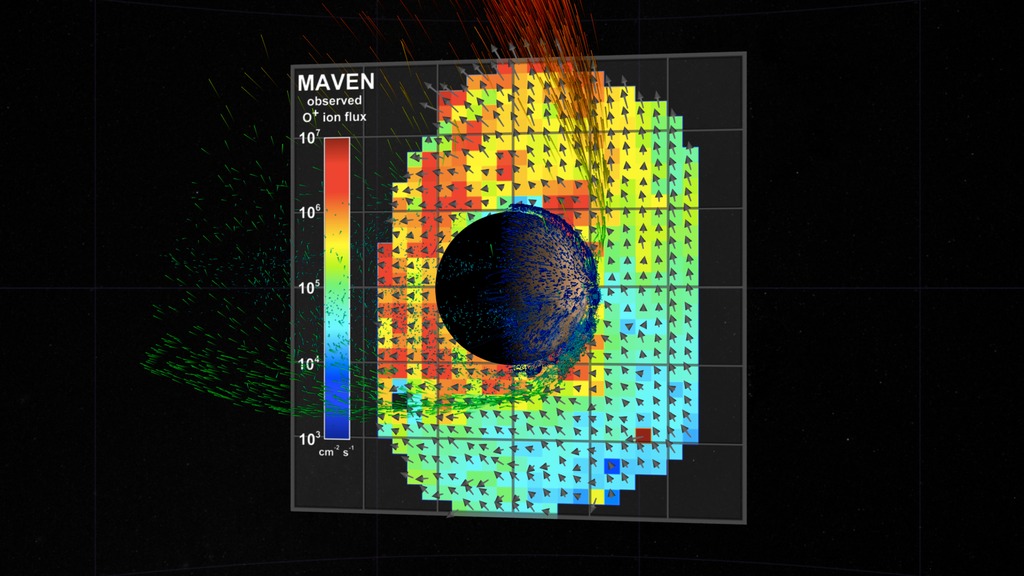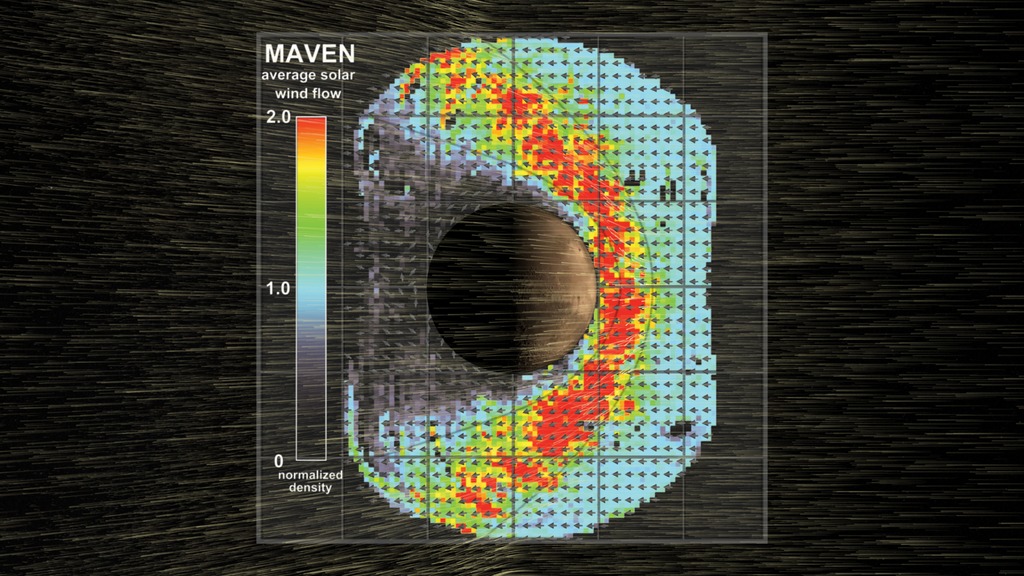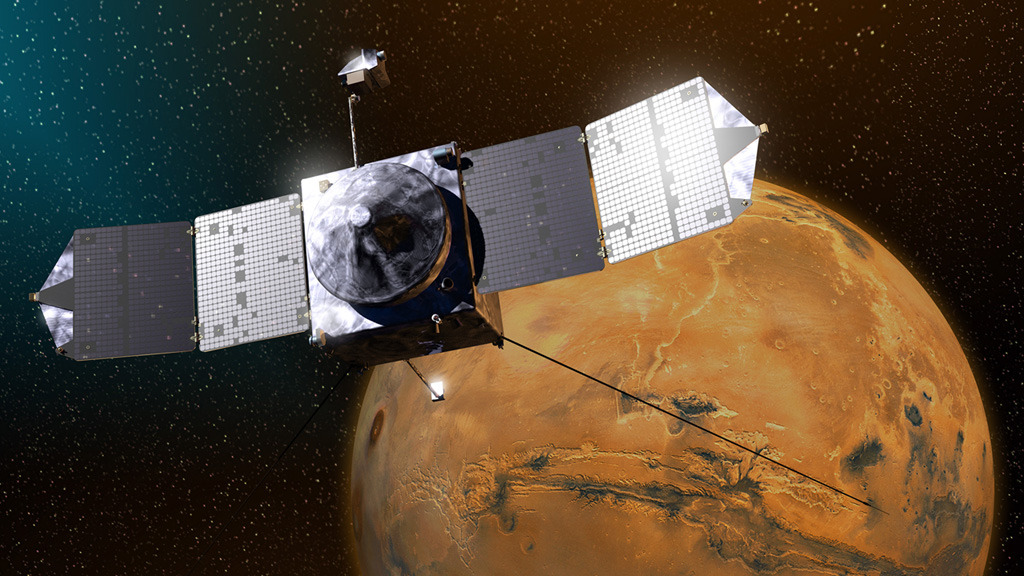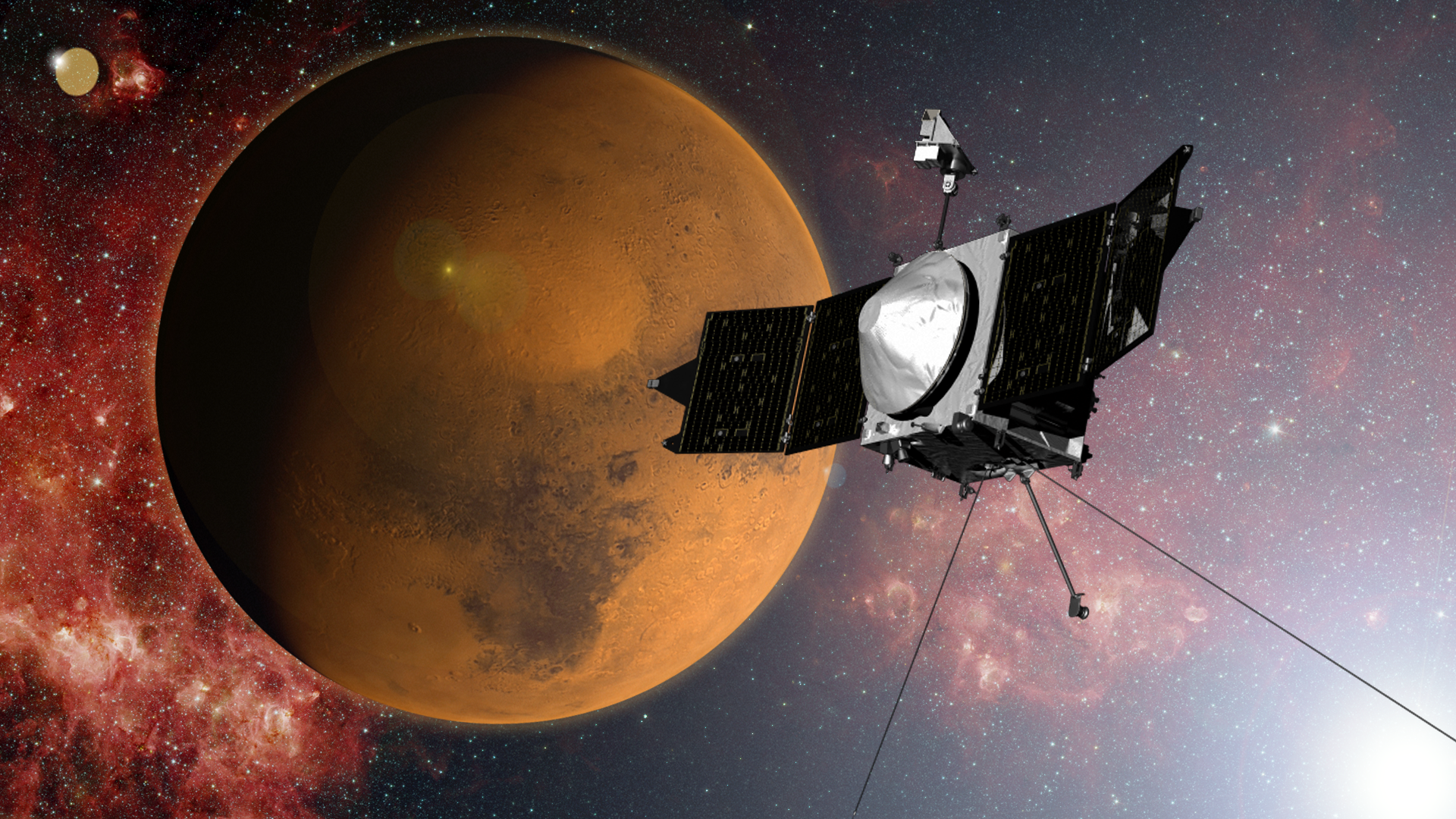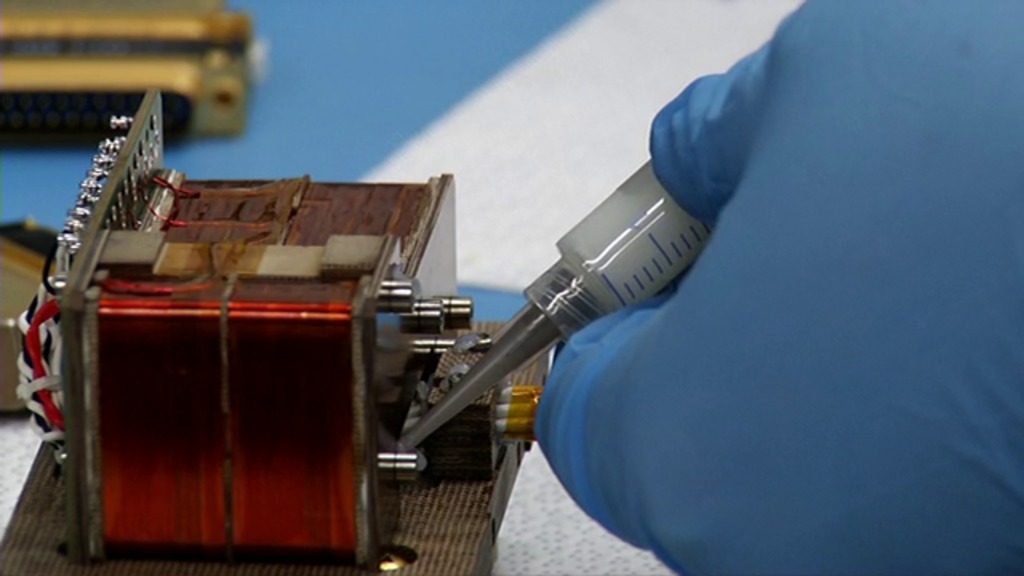Investigating the Martian Atmosphere
The Martian surface bears ample evidence of flowing water in its youth, from crater lakes and riverbeds to minerals that only form in water. But today Mars is cold and dry, and scientists think that the loss of Mars' water may have been caused by the loss of its early atmosphere. NASA's Mars Atmosphere and Volatile EvolutioN mission, or MAVEN, will be the first spacecraft devoted to studying the Red Planet's upper atmosphere, in an effort to understand how the Martian climate has changed over time.
NASA's MAVEN spacecraft is the first mission devoted to studying the Mars upper atmosphere. Its findings will help scientists understand how Mars lost its early atmosphere, transforming it from a wet planet into the dry world we see today.
For complete transcript, click here.
Watch this video on the NASAexplorer YouTube channel.
Credits
Please give credit for this item to:
NASA's Goddard Space Flight Center
-
Animators
- Walt Feimer (HTSI)
- Michael Lentz (USRA)
- Greg Shirah (NASA/GSFC)
- Ernie Wright (USRA)
- Chris Smith (HTSI)
-
Video editor
- Dan Gallagher (USRA)
-
Narrator
- Dan Gallagher (USRA)
-
Producer
- Michael Starobin (HTSI)
-
Scientists
- Bruce Jakosky (LASP)
- David Folta (NASA/GSFC)
-
Project support
- Aaron E. Lepsch (ADNET Systems, Inc.)
-
Videographers
- Rob Andreoli (Advocates in Manpower Management, Inc.)
- Dan Gallagher (USRA)
-
Writer
- Michael Starobin (HTSI)
Release date
This page was originally published on Wednesday, September 17, 2014.
This page was last updated on Wednesday, May 3, 2023 at 1:50 PM EDT.
Missions
This visualization is related to the following missions:Series
This visualization can be found in the following series:Tapes
This visualization originally appeared on the following tapes:-
MAVEN MOI
(ID: 2014061)
Sunday, September 21, 2014 at 4:00AM
Produced by - Dan Jacob (Global Science and Technology, Inc.)
